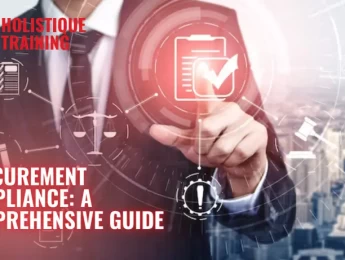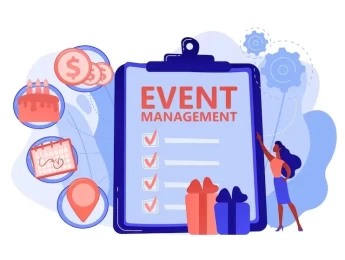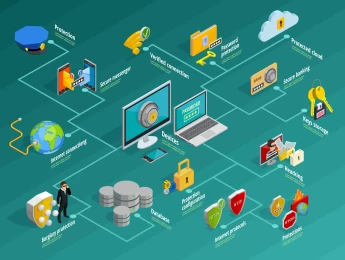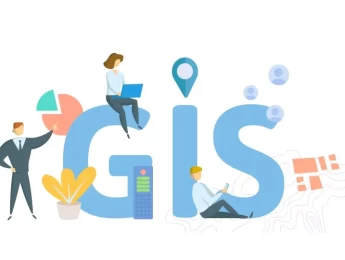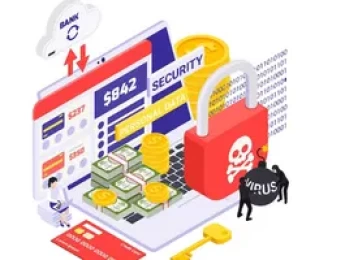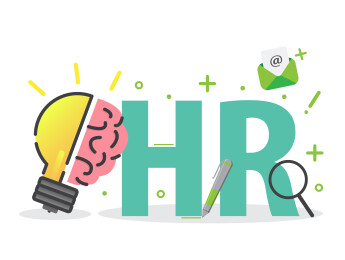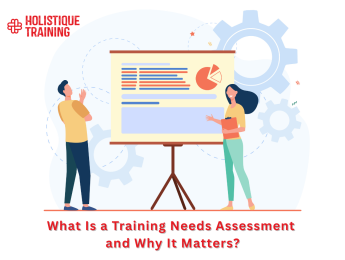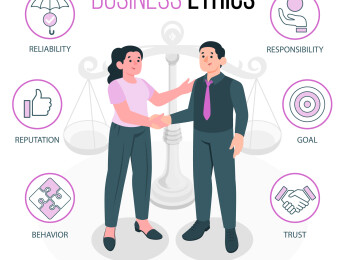- Table of Contents
- Introduction
- What Is Contracting?
- Why Is Contracting Important?
- Clarity and Understanding
- Risk Mitigation
- Relationship Management
- Legal Compliance
- Dispute Resolution
- 10 Essential Contracting Skills for Success in Today's Market
- 1. Effective Communication
- 2. Negotiation Skills
- 3. Contract Drafting and Review
- 4. Attention to Detail
- 5. Risk Assessment and Management
- 6. Problem-Solving Skills
- 7. Time Management
- 8. Financial Acumen
- 9. Relationship Building
- 10. Continuous Learning and Adaptability
- Ethical Considerations in Contracting
- Honesty and Transparency
- Conflict of Interest Management
- Confidentiality and Data Protection
- Fair and Equitable Treatment
- Adherence to Legal and Regulatory Standards
- Social Responsibility and Sustainability
- Conflict Resolution with Integrity
- Technology and Contracting
- Contract Management Software
- Blockchain Technology
- Artificial Intelligence (AI) and Natural Language Processing (NLP)
- Electronic Signatures and Remote Collaboration Tools
- Data Analytics and Predictive Tools
- Mobile Applications for Contract Management
- Conclusion
Introduction
In today's dynamic business landscape, contracting ensures successful collaborations and mitigating risks. Whether you're a freelancer, a small business owner, or a project manager, understanding the fundamentals of contracting and possessing the essential skills can significantly impact your success. This blog post will delve into the world of contracting, its significance, and the ten crucial skills required to excel in today's market.
What Is Contracting?
Contracting refers to the process of establishing legal agreements between two or more parties that outline the terms, conditions, and obligations of a professional relationship. Contracts are designed to protect the rights and interests of all involved parties, clarify expectations, and establish a framework for successfully executing a project or business venture. Contracts may vary in complexity, ranging from simple freelance agreements to comprehensive agreements between multinational corporations.
Type of Contract | Description |
Employment Contracts | Establish the terms of employment between employers and employees, covering salaries, benefits, and job responsibilities. |
Service Contracts | Outlines the terms and scope of services a contractor or service provider provides to a client. This is common in freelancing and consulting. |
Sales Contracts | Document the terms of sale for products or services, including payment terms, delivery schedules, and warranties. |
Partnership Agreements | Define the roles and responsibilities of partners in a business venture, including profit-sharing, decision-making, and exit strategies. |
Vendor Agreements | Specify the terms and conditions of a business relationship with a supplier or vendor, addressing aspects such as pricing, quality, and delivery. |
Lease Agreements | Detail the terms of leasing a property, outlining rent, lease duration, and responsibilities of both the landlord and tenant. |
Table 1: Types of contracts
Why Is Contracting Important?
In the vast tapestry of the business world, contracting stands as the meticulous stitching that holds various elements together. Its importance resonates deeply across industries and professions, and understanding why contracting is vital provides a foundation for successful collaborations. Research has also shown that a staggering 92% of organisational revenue losses are attributed to ineffective contract management practices.
Clarity and Understanding
Contracts act as the architectural blueprints of professional relationships. In a world where miscommunication can lead to costly misunderstandings, contracts provide a clear and documented understanding of the parties' rights, responsibilities, and expectations. When all stakeholders comprehend the terms laid out in black and white, the likelihood of conflicts arising from misinterpretation is significantly reduced. Imagine a freelance designer agreeing to create a website for a client without a detailed contract. Ambiguities regarding the number of revisions, payment schedules, and project scope might lead to disagreements, potentially damaging both parties' reputations. A well-structured contract prevents such pitfalls, ensuring all parties are on the same page from the outset.
Risk Mitigation
Contracts are not merely pieces of paper but shields against potential risks and liabilities. Well-drafted contracts are proactive tools to identify, assess, and mitigate risks. Contracts act as a protective mechanism by addressing possible issues before they occur. Consider a construction project involving multiple subcontractors. Without clearly defined contracts outlining each party's responsibilities, the project could face delays, cost overruns, or even legal disputes. However, a comprehensive contract strategy that anticipates potential risks, allocates responsibilities and defines dispute resolution mechanisms significantly reduces the project's vulnerability.
Relationship Management
At its core, contracting is about relationships. Contracts establish a solid foundation for successful professional collaborations. They promote transparency, trust, and effective communication between parties. The human element can sometimes be lost in an era of fast-paced and digital business interactions. Contracts bridge this gap by formalising commitments and expectations, thereby fostering positive working relationships. A well-crafted contract outlines tasks and deliverables and sets the tone for a respectful and professional partnership.
Legal Compliance
Navigating the legal landscape is a daunting task for businesses and professionals alike. Laws, regulations, and industry standards vary, challenging and ensuring compliance without expert guidance. Contracts serve as legal compasses, ensuring that all parties involved adhere to the relevant laws and regulations. For instance, in healthcare, contracts between healthcare providers and vendors must comply with stringent data protection regulations such as HIPAA in the United States. Failure to comply can result in severe legal consequences. Contracts tailored to legal requirements protect parties from legal repercussions and safeguard against breaches of intellectual property rights, confidentiality, and data protection.
Dispute Resolution
While no one anticipates conflicts, they are an inherent part of any professional relationship. In the unfortunate event of a disagreement or breach, contracts provide a framework for dispute resolution. They outline clear negotiation, mediation, or arbitration procedures, reducing the likelihood of costly and protracted legal battles. A thoughtfully constructed dispute resolution clause can save parties significant time, money, and emotional stress. It encourages amicable resolution rather than escalating conflicts to courtroom battles, promoting a more efficient and harmonious business environment.
In essence, contracting is the cornerstone upon which successful collaborations are built. Its importance cannot be overstated, as it protects the parties involved and fosters an environment of trust, clarity, and professionalism. By recognising the multifaceted role of contracting, businesses and professionals can successfully harness its power to navigate the complexities of the modern business landscape.
10 Essential Contracting Skills for Success in Today's Market
While grounded in legal frameworks, contracting is an intricate dance of skills and expertise. Mastering these skills is akin to having a well-stocked toolbox; each skill serves a specific purpose and is crucial for navigating the multifaceted world of contracts.
1. Effective Communication
Effective communication is the linchpin of successful contracting. It involves articulating ideas clearly, listening actively, and ensuring all parties understand the terms and conditions. Skilled communicators can convey complex legal jargon in simple, understandable language, bridging the gap between legal intricacies and layman's comprehension. This skill facilitates smooth negotiations, promotes trust, and prevents misunderstandings, laying the foundation for robust contractual relationships.
2. Negotiation Skills
Negotiation in contracting is an art as much as it is a skill. Negotiators must balance the interests of multiple parties, often aligning conflicting needs to achieve mutually beneficial outcomes. Negotiating contracts involves reaching an agreement and ensuring that all parties involved feel heard and valued. A skilled negotiator can navigate tense discussions, resolve disputes, and forge agreements that stand the test of real-world implementation. In a study carried out by Barclaycard Payments, as cited by CIPS, a significant 46% of decision-makers openly acknowledged lacking confidence in their ability to negotiate effectively in face-to-face interactions. This revelation underscores the need for targeted training and skill development programmes, especially in the realm of interpersonal communication and negotiation techniques.
Negotiation Technique | Description |
Active Listening | Fully concentrating, understanding, and responding to a speaker |
Empathy | Understanding and sharing the feelings of another |
Rapport Building | Developing a positive, trusting relationship |
Table 2: Negotiation techniques
3. Contract Drafting and Review
Drafting and reviewing contracts is the bedrock of contracting expertise. This skill requires a deep understanding of legal language, a keen eye for detail, and the ability to anticipate potential ambiguities or loopholes. Drafting a contract involves translating verbal agreements into comprehensive written documents. Reviewing contracts demands meticulous attention to every clause and subclause, ensuring that the document accurately reflects the parties' intentions and safeguards their interests.
4. Attention to Detail
In the realm of contracts, the devil truly lies in the details. Professionals skilled in this area meticulously scrutinise contracts, identifying potential risks, ambiguities, or inconsistencies. They ensure that no aspect of the agreement is overlooked, preventing costly mistakes that could lead to legal disputes. Attention to detail also encompasses a deep understanding of the legal implications of various terms and clauses, allowing for nuanced and precise contractual arrangements.
5. Risk Assessment and Management
Contractors must possess the ability to assess and manage risks effectively. This skill involves identifying potential risks associated with a contract, evaluating their potential impact on the project or collaboration, and implementing mitigation strategies. Risk management in contracting is proactive; it involves anticipating challenges, formulating contingency plans, and, if necessary, renegotiating terms to minimise adverse consequences. A skilled risk manager can navigate uncertainties and ensure project continuity even in the face of unexpected hurdles.
6. Problem-Solving Skills
Contracts rarely unfold exactly as planned; challenges and unexpected issues are inevitable. The ability to solve problems swiftly and creatively is a hallmark of contracting expertise. Problem-solving skills enable professionals to address issues as they arise, preventing minor hiccups from escalating into major roadblocks. Effective problem solvers can think on their feet, analyse situations objectively, and devise innovative solutions that keep projects on track.
7. Time Management
Time management is crucial in the world of contracting, where missed deadlines can lead to financial losses and damaged reputations. Skilled contractors manage their time effectively, set realistic timelines, prioritise tasks, and adhere to project schedules. They understand the importance of deadlines in contractual agreements and employ strategies to ensure timely completion. Effective time management prevents disputes and fosters trust among stakeholders by demonstrating reliability and professionalism.
8. Financial Acumen
A deep understanding of financial concepts, budgeting, and pricing models is indispensable for successful contracting. Contractors must accurately estimate costs, negotiate fair compensation, and monitor financial aspects throughout the project lifecycle. Financial acumen enables professionals to create realistic budgets, allocate resources efficiently, and make financially sound decisions. It also involves understanding the financial implications of contractual terms and ensuring that agreements are financially viable and sustainable for all parties involved.
9. Relationship Building
Beyond the legalities, contracting is fundamentally about building and maintaining relationships. Skilled contractors excel in fostering positive relationships with clients, vendors, subcontractors, and other stakeholders. Building rapport is not just a soft skill; it's a strategic asset. Strong professional connections facilitate effective collaboration, open channels for clear communication, and create a positive work environment. Contractors who invest in relationship building often find themselves at the centre of a network of trusted partners, opening doors to new opportunities and collaborations.
10. Continuous Learning and Adaptability
The contracting landscape is dynamic, shaped by legal changes, technological advancements, and evolving market trends. Successful contractors recognise the importance of continuous learning and adaptability. They stay updated on industry developments, legal nuances, and emerging technologies, ensuring their contracting practices remain relevant and effective. Continuous learning equips professionals with the knowledge and skills to navigate new challenges, adopt innovative tools and approaches, and meet the changing needs of clients and stakeholders.
These essential skills form the foundation of contracting expertise. Professionals who hone these skills excel in managing contracts effectively and contribute significantly to the success of their projects, collaborations, and businesses. Contracting becomes a powerful catalyst for business growth and sustainable professional relationships when practised with mastery and finesse.
Ethical Considerations in Contracting
Ethical considerations guide professionals through complex negotiations and collaborations in the intricate web of contracting, where legalities intertwine with interpersonal dynamics. Upholding integrity in contracting practices is not just a moral obligation; it's a strategic imperative that underpins the trust and credibility upon which successful professional relationships are built.
Honesty and Transparency
Ethical contracting begins with honesty and transparency. Parties involved in a contract must be forthright about their intentions, capabilities, and limitations. Misrepresentation or withholding of critical information can lead to misunderstandings and erode trust. For instance, a vendor should transparently disclose any limitations in their product or service offerings, allowing clients to make informed decisions. Honesty fosters a culture of openness, laying the foundation for a relationship built on trust.
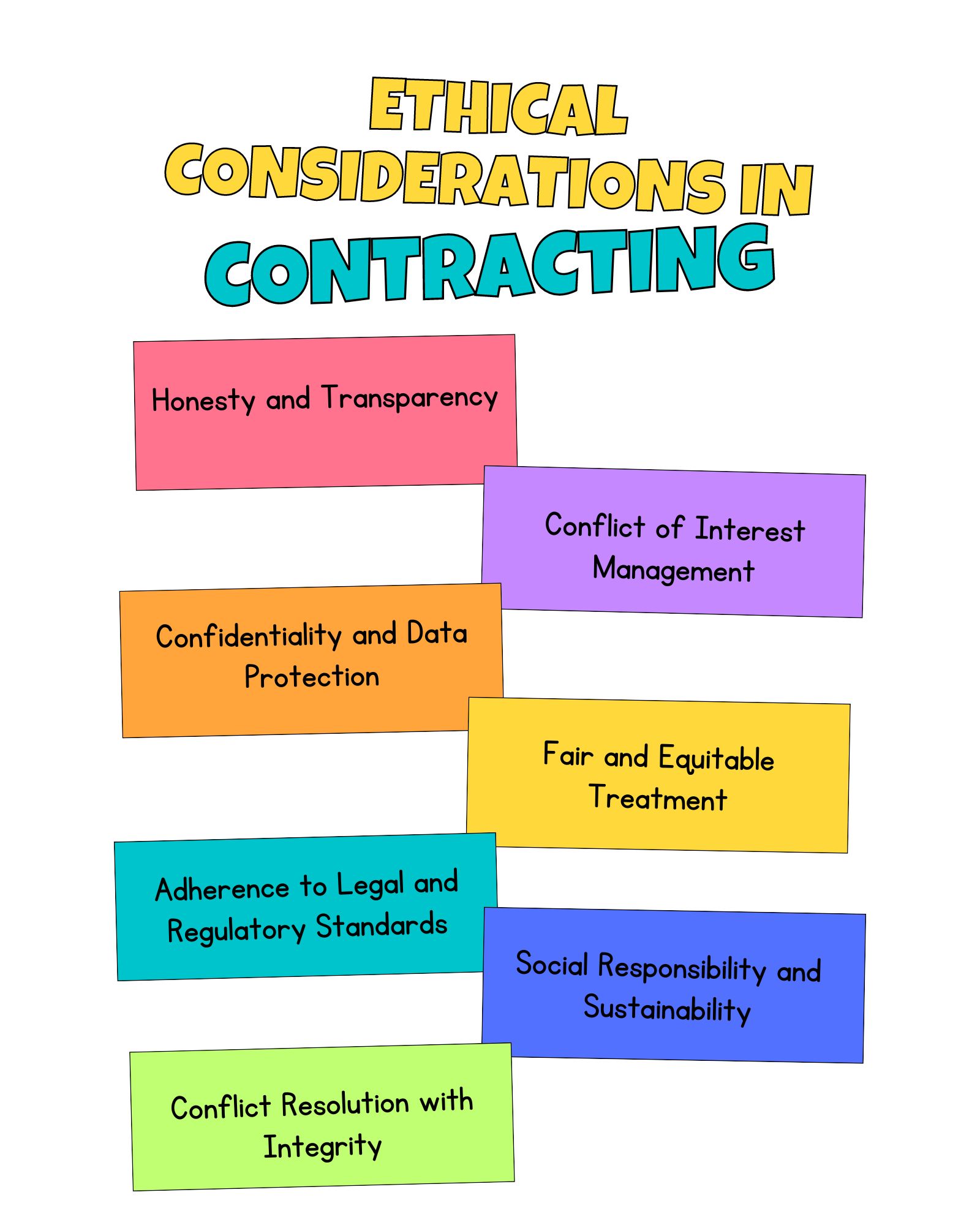
Conflict of Interest Management
One of the ethical dilemmas in contracting is managing conflicts of interest. Professionals often juggle multiple clients or projects, and conflicts of interest can arise when obligations to one party clash with those of another. Ethical contractors navigate these situations with finesse, disclosing potential conflicts to all parties involved and seeking consent where necessary. By managing conflicts transparently, professionals demonstrate their commitment to fair dealings and prevent compromising their integrity.
Confidentiality and Data Protection
Confidentiality is paramount in contracting, especially when dealing with sensitive information. Ethical contractors respect the confidentiality of client data, trade secrets, and proprietary information. Robust confidentiality clauses in contracts outline the scope of confidentiality and the measures taken to protect sensitive data. This ethical practice not only safeguards the interests of all parties but also upholds professional integrity in the eyes of clients and stakeholders.
Fair and Equitable Treatment
Ethical contractors treat all parties involved in a contract with fairness and equity. This includes fair compensation for services rendered, just treatment of employees, and equitable distribution of resources. Discrimination, favouritism, or unfair practices can tarnish a contractor's reputation and lead to legal repercussions. Ethical professionals prioritise fairness, ensuring all stakeholders are treated with respect and dignity.
Adherence to Legal and Regulatory Standards
Ethical contracting necessitates strict adherence to legal and regulatory standards. This includes compliance with industry-specific regulations, intellectual property laws, and data protection regulations. Ethical contractors invest time and effort in staying informed about the legal landscape relevant to their industry. They proactively update contracts to align with changing legal requirements, ensuring that all parties remain protected and compliant.
Social Responsibility and Sustainability
Ethical contractors recognise their role in society and the environment. They consider the social and environmental impact of their actions and decisions. This could involve sourcing materials responsibly, supporting local communities, or adopting eco-friendly practices. By integrating social responsibility and sustainability into contracting practices, professionals contribute positively to society, demonstrating a commitment to ethical conduct beyond contractual obligations.
Conflict Resolution with Integrity
Conflicts are inevitable in any professional relationship. Ethical contractors approach conflict resolution with integrity, seeking resolution through transparent communication, mediation, or arbitration as outlined in the contract. Ethical resolution methods prioritise fairness and objectivity, ensuring that disputes are resolved without compromising the professional integrity of any party involved.
Ethical considerations in contracting are the bedrock upon which trustworthy and enduring professional relationships are built. Upholding ethical standards protects the interests of all parties involved and enhances the reputation and credibility of professionals and businesses. Ethical contractors are not just masters of contracts; they are custodians of integrity, fostering an environment where honesty, transparency, and fairness prevail, creating a thriving ecosystem of ethical business practices.
Technology and Contracting
Technology has emerged as a transformative force in the rapidly evolving business landscape, reshaping traditional practices and enhancing efficiency across industries. Contracting, a cornerstone of business relationships, has not remained untouched by this technological wave. Today, innovative technologies are revolutionising how contracts are created, executed, and managed, ushering in a new era of precision, security, and convenience in the contracting process.
Contract Management Software
Contract management software has emerged as a game-changer in the world of contracting. These digital platforms streamline the entire contract lifecycle, from creation and negotiation to execution and renewal. With features like template libraries, e-signatures, and automated notifications, contract management software significantly reduces the time and effort traditionally spent on administrative tasks. Professionals can now focus on critical aspects of contracting, such as negotiations and relationship building, while the software handles the meticulous details, ensuring accuracy and compliance with legal standards.
Blockchain Technology
Blockchain technology, famed for its security and transparency, is entering contracting practices. One notable application of blockchain in contracting is smart contracts, self-executing contracts with the terms of the agreement directly written into code. These contracts automatically execute actions when predefined conditions are met, eliminating the need for intermediaries and reducing the risk of fraud or manipulation. Blockchain's immutable ledger ensures that its integrity remains intact once a contract is established, providing a level of trust previously unattainable in traditional paper-based contracts.
Artificial Intelligence (AI) and Natural Language Processing (NLP)
Artificial Intelligence and Natural Language Processing technologies have elevated contract analysis to unprecedented levels of efficiency and accuracy. AI-powered tools can scan vast volumes of contracts, extract critical information, identify risks, and ensure compliance with legal standards. NLP algorithms enable these tools to understand and interpret the nuances of human language, making them adept at discerning context and intent within contractual documents. This capability expedites the review process and minimises the likelihood of oversight, ensuring that contracts are comprehensive and error-free. In fact, in a survey conducted by Docusign encompassing 1,300 contracting professionals globally, nearly half of the respondents expressed expectations that AI would play a pivotal role in diminishing human errors and mitigating risks within contract management processes.
Electronic Signatures and Remote Collaboration Tools
The advent of electronic signatures has transformed the way contracts are signed and executed. Digital signatures, backed by encryption technology, offer a level of security equivalent to traditional handwritten signatures. Moreover, electronic signatures enable remote collaboration, allowing parties from around the globe to sign contracts without needing physical presence. This seamless integration of technology accelerates the contracting process and enhances accessibility and convenience, particularly in an era where remote work is increasingly prevalent.
Data Analytics and Predictive Tools
Data analytics tools are being employed to extract valuable insights from contract data. Businesses can identify patterns, assess risks, and optimise future contracts by analysing past contract performance. Predictive analytics, powered by machine learning algorithms, can forecast potential issues, enabling proactive risk mitigation strategies. These tools give businesses strategic foresight, allowing them to make informed decisions and negotiate contracts with a deeper understanding of potential outcomes.
Mobile Applications for Contract Management
Mobile applications have extended the reach of contracting professionals, allowing them to manage contracts on the go. Contract management apps provide access to essential contract information, deadlines, and real-time notifications. Professionals can review, approve, or initiate contracts from their smartphones or tablets, enabling agility and responsiveness in a fast-paced business environment. Mobile applications enhance collaboration and ensure that critical contract-related tasks are not delayed due to geographical constraints.
In summary, integrating technology into contracting practices has brought about a paradigm shift, transforming cumbersome, time-consuming processes into streamlined, efficient workflows. These technological advancements not only enhance productivity but also elevate the quality and accuracy of contracts. Professionals who embrace these innovations gain a competitive edge, navigating the complexities of contracting with precision and speed. As technology advances, the future of contracting holds the promise of even more sophisticated tools, further revolutionising how businesses establish and manage their professional relationships.
Conclusion
In the dynamic realm of modern business, mastering contracting skills isn't just an option; it's necessary to thrive in a competitive landscape. The essential skills we've explored – effective communication, negotiation, attention to detail, risk management, problem-solving, time management, financial acumen, relationship building, adaptability, and ethical considerations – form the bedrock of successful contracting. Professionals who invest in honing these skills find themselves well-equipped to navigate the complexities of contracts, fostering robust collaborations and ensuring project success.
Remember, expertise in contracting isn't just about understanding legal jargon; it's about weaving a tapestry of trust, clarity, and professionalism in every agreement. By embracing continuous learning and adapting to emerging technologies, you position yourself as a contractor and strategic partner in every business endeavour.
Unlock Your Contracting Potential with Our Course
Ready to elevate your contracting skills to unparalleled heights? Enrol in our course, ‘Becoming an Expert in Contract Management,’ where you’ll delve deep into the intricacies of contracting, guided by industry experts. Gain hands-on experience in drafting impeccable contracts, harnessing the power of cutting-edge technologies, and learning the art of ethical negotiation. This course isn’t just a learning opportunity; it’s your gateway to becoming a master in the art and science of contracting. Seize the chance to transform your career, enhance your professional relationships, and position yourself as a sought-after expert in the exciting world of contract management. Enrol now and embark on your journey towards unparalleled success!








